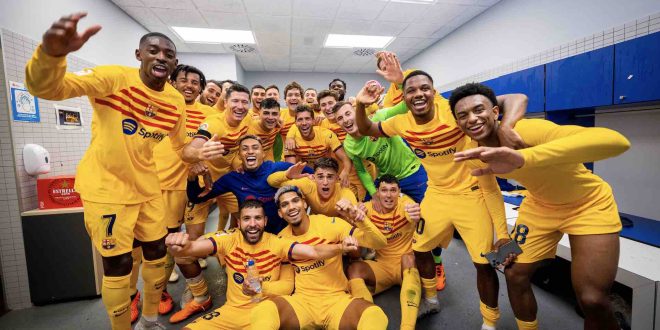Barcelona won La Liga again three years later, and it did so in an unusual way for the Blaugrana team, whose successes usually depended on an attacking display that overwhelmed its rivals. Without Messi, a player who has been such a huge goal-producing machine, defending has become central to how Barcelona play without the Argentine.
At the beginning of the year, Juan Laporta, the club’s president, activated what were popularly called “economic levers”. This was nothing more than selling the club’s assets in the future, such as the audiovisual production part or promoting the short-term recapitalization of the club and being able to meet the salary limit set by La Liga.
Thanks to these economic levers, players such as Rafinha, Conde, Lewandowski, Christensen, Kesset and Bellerin also arrived.
But the big decisive lever was in the house: Marc-André ter Stegen. Araujo’s assertion as a world-class defender, the emergence of Alejandro Balde as a starting full-back (a fact that earned him a trip to the World Cup in Qatar) and Conde’s contribution at the start of the season (his performance later declined) allowed Xavi’s side to improve in defence.
But none of this would have been possible without the massive contribution of Ter Stegen, who produced his best performance ever. The German goalkeeper took the torch left by Messi to win matches. If the Argentine knocked them out in the opponent’s area, then the German brought enough points from his own area.
Besides Ter Stegen, Lewandowski’s goals, especially before the World Cup, the team’s solidarity, personified by Gavi who gave Barcelona a competitive edge not seen for a long time, De Jong’s physical ability, Dembele’s flashes, Raphinha’s good character in goals and assists and Pedri’s talent, which has diminished Due to injuries, she allowed Xavi to win his first major trophy as a coach.
The road has begun.
Source: As
 Barcelona News1
Barcelona News1






